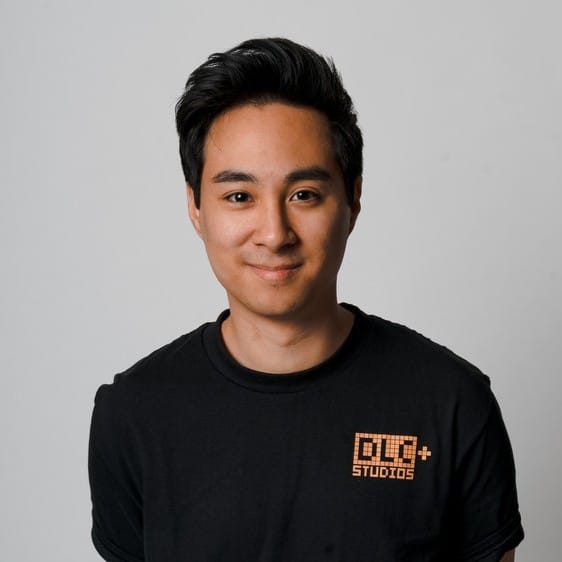Some of you in UK esports may by now have seen the dispute between a designer known as Moped and esports org NerdRage.
We’re not going to get into a ‘he said, they said’ drama fest and dig that specific matter up again – the posts were made a week ago and people can find more info on social media if they like. Yes of course the org acted wrongly, but both sides could have discussed this better to prevent something like this happening.
On that note, let’s look at a more positive angle to help other designers and orgs in the future – what should they be aware of and how can both parties get a decent, clear agreement? Sammy Lam and Dom Sacco share some advice.
‘Research is important – look into who you’re working with or who you’re hiring’
Sammy Lam, DLC Studios director, and founder of new community and creativity initiative We Be Bold, shares his thoughts on what people can do to ensure they get paid – or receive work – fairly

“Designers do get taken advantage of far too often. There could be different reasons, but for some of these companies, I feel they don’t respect creative work and the time and energy that goes into it, excluding the fact that equipment and software costs money too.
I’m not saying designers shouldn’t ever work for free, but both parties should get equal value.
The designs shouldn’t have been handed over prior to payment or deposit if Owen wasn’t comfortable working for free. I think the situation seemed unorganised from the start and inevitably something went wrong.
This could have been avoided by scheduling a meeting. If there was an agreement of works before starting the project, then the designer would know if they wanted to take the job or not. In this meeting, they’d be able to discuss and agree on the price, final deliverables, deadline and style etc to make sure they’re both on the same page to avoid any misunderstandings, or in this case, stolen work and not being paid.
Research is important. Research into who you’re working with. If, for example’s sake, people are talking about an organisation previously scamming others, that’s a major red flag, and vice versa, an organisation should also research into who they’re hiring.
As a community, we have to make sure these orgs take responsibility for their actions and that there are consequences. Unfortunately, companies and organisations do get away with bad practices still.
If I’m not mistaken, Nerdrage has an in-house designer that was told to replicate the design initially done by Owen. Although their designer may not have known depending on the information given to them, but it is as much the responsibility of the designer to inform Nerdrage about following intellectual property laws, and the responsibility of the owners to research and understand these types of laws to make sure they’re doing things the right way.”
‘Set clear conditions and get everything in writing before agreeing a deal’
Clear communication and common courtesy can go a long way, says Esports News UK editor and esports consultant Dom Sacco

“Yesterday, I said no to a potential client for the first time.
I didn’t feel they were the right fit for my services and I was honest, but also polite and humble, and wished them well.
I took the time on a few separate calls to hear about them and what they want to achieve. I hope I gave them the courtesy they deserved and, likewise, I have had other potential clients be honest with me and turn me down too. Then there are those that are the right fit, and bingo, both parties are happy.
But even with the latter, it’s really important we lay out our cards on the table, get any agreement in writing up front (even if it’s a simple bullet point list, payment amount and deadline for completion in an email, before any contracts or agreements are signed).
Some smaller tasks might not require a contract, but clear communication and task details are still vital – it lessens the possibility of anything going wrong later on, if both parties are in agreement from the off. Making changes or actions to a piece of work without letting the other party know can cause problems, as was the case with the NerdRage situation.
I commissioned an artist a few years ago. They were clear and up front around payment terms, dates, and worked closely with me for feedback and direction.
There weren’t any problems, partly because they laid out all the details of their work early on.
Some freelancers might feel awkward listing detailed requirements or rules about how they work, but they really shouldn’t. Because it helps their clients understand them, their process and when they can expect to receive the work.
Agree when payments should be made. Is it up front, half at the start and half upon completion, or full payment at the end? I’ve commissioned other design work in esports over the years, and on most of those occasions, the designer was paid upon completion. But everyone is different.
Let’s treat everyone with common courtesy and, if something does go wrong, try your best to resolve any differences or problems on a Discord call before things spiral into the public sphere.”
Essential UK Casino & Betting Guides
Looking for the best casinos or betting sites? Below you’ll find our recommended guides that players in the UK are loving right now.
- UK Best Online Casinos for 2025
- Top Online Betting Sites 2025
- Top UK Esports Bookmakers
- Non Gamstop Casinos UK
- Best Crypto Casino Sites

Dom is an award-winning writer and finalist of the Esports Journalist of the Year 2023 award. He has almost two decades of experience in journalism, and left Esports News UK in June 2025.
As a long-time gamer having first picked up the NES controller in the late ’80s, he has written for a range of publications including GamesTM, Nintendo Official Magazine, industry publication MCV and others. He also previously worked as head of content for the British Esports Federation.


